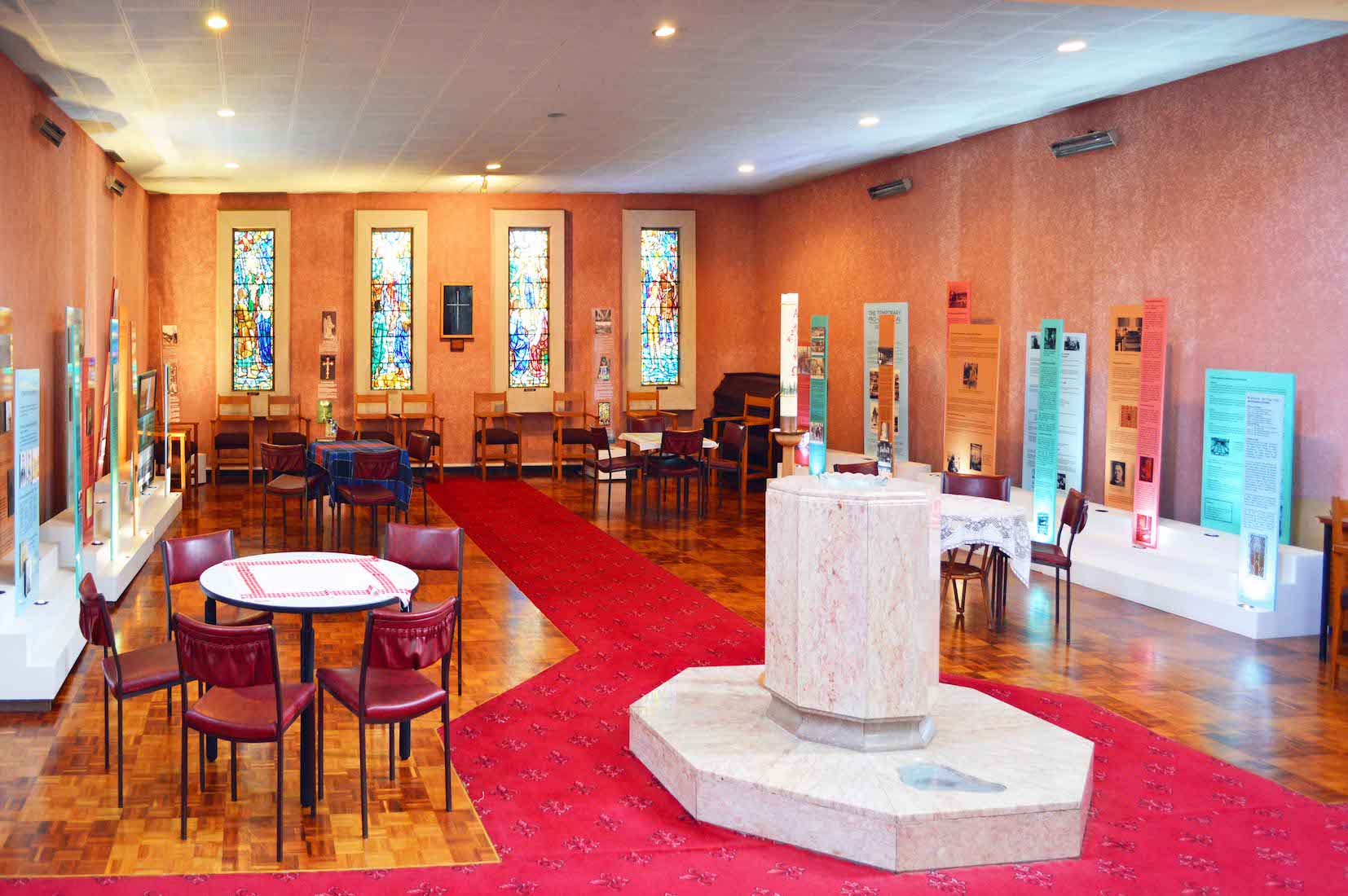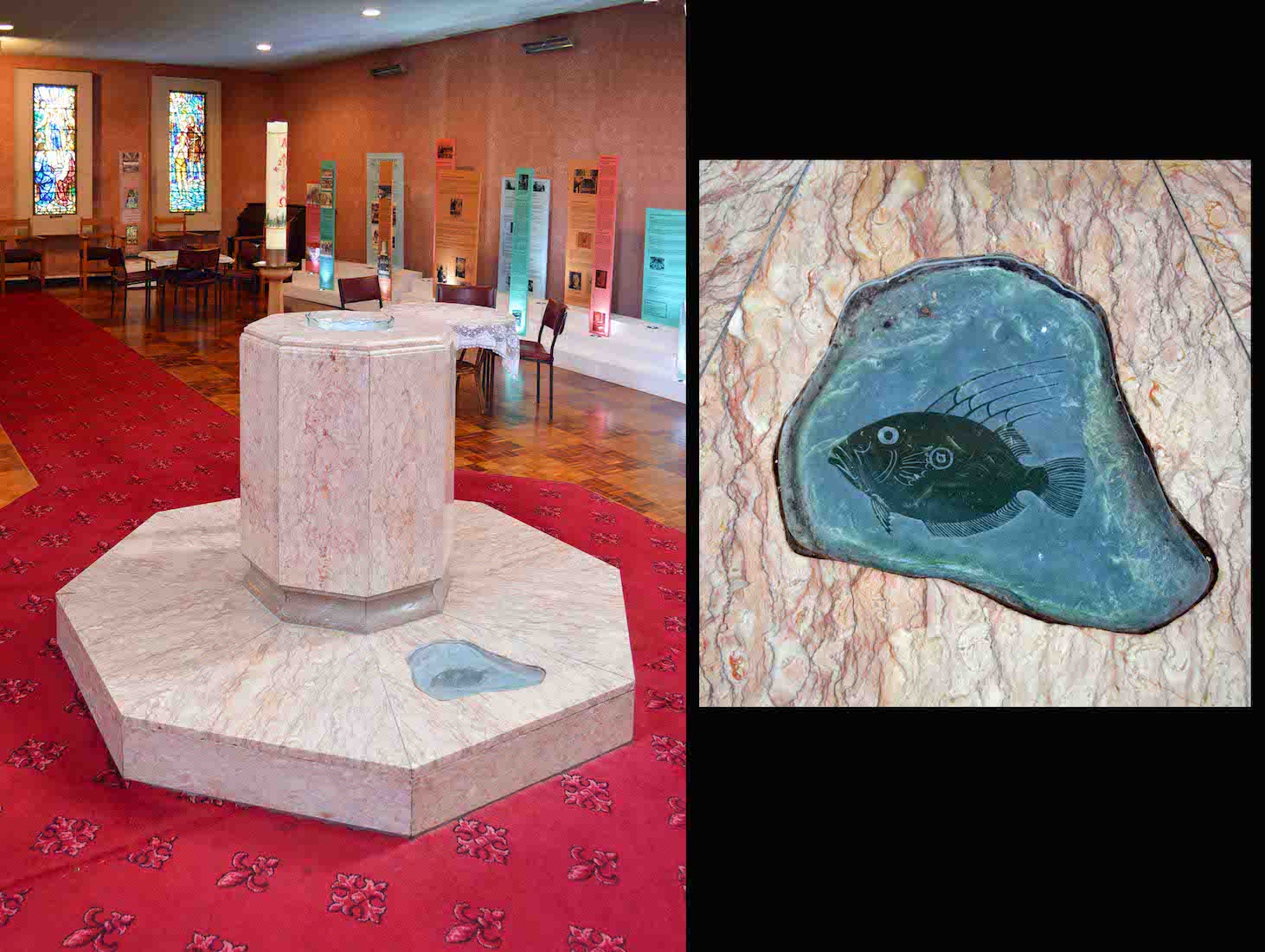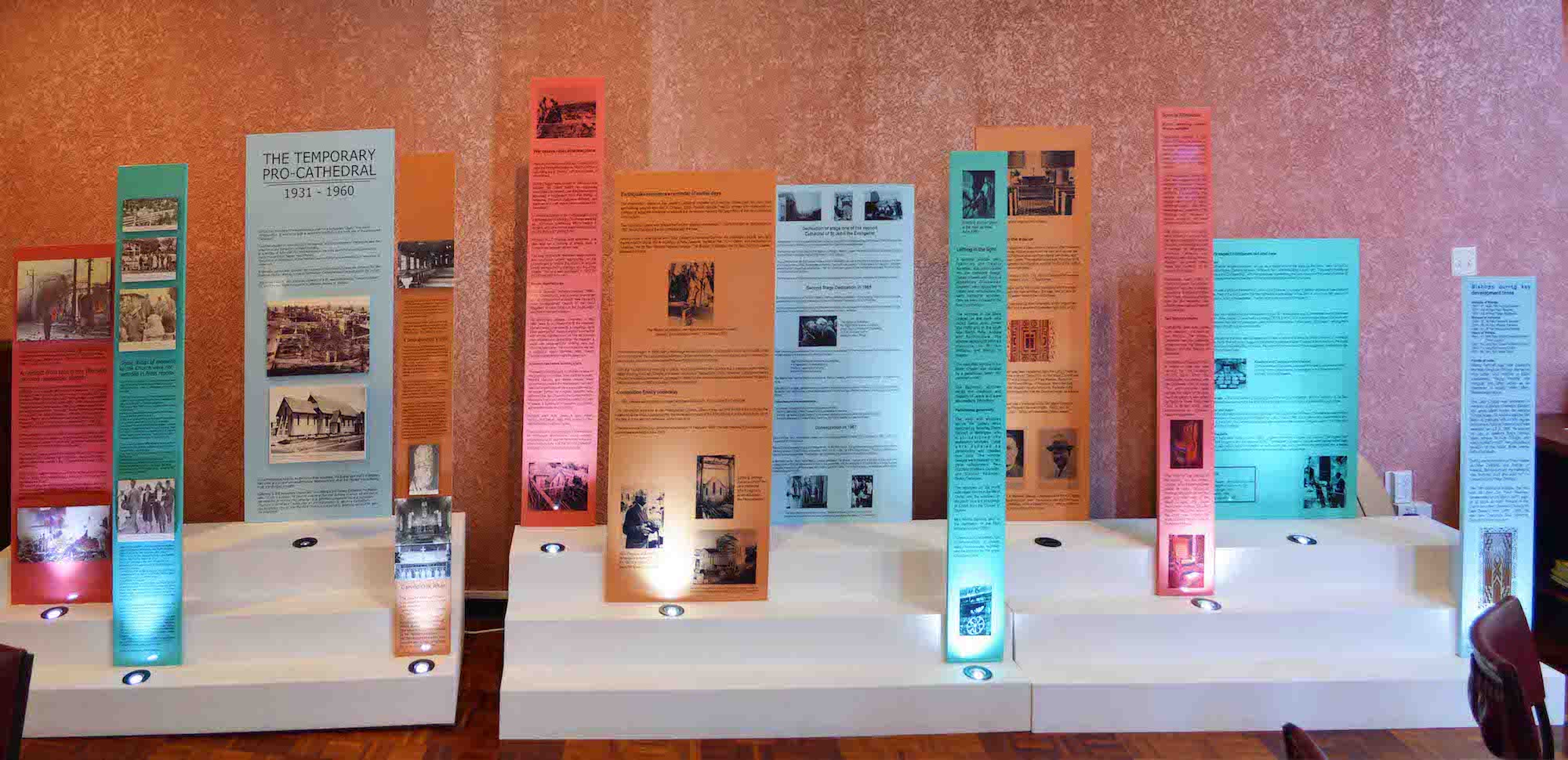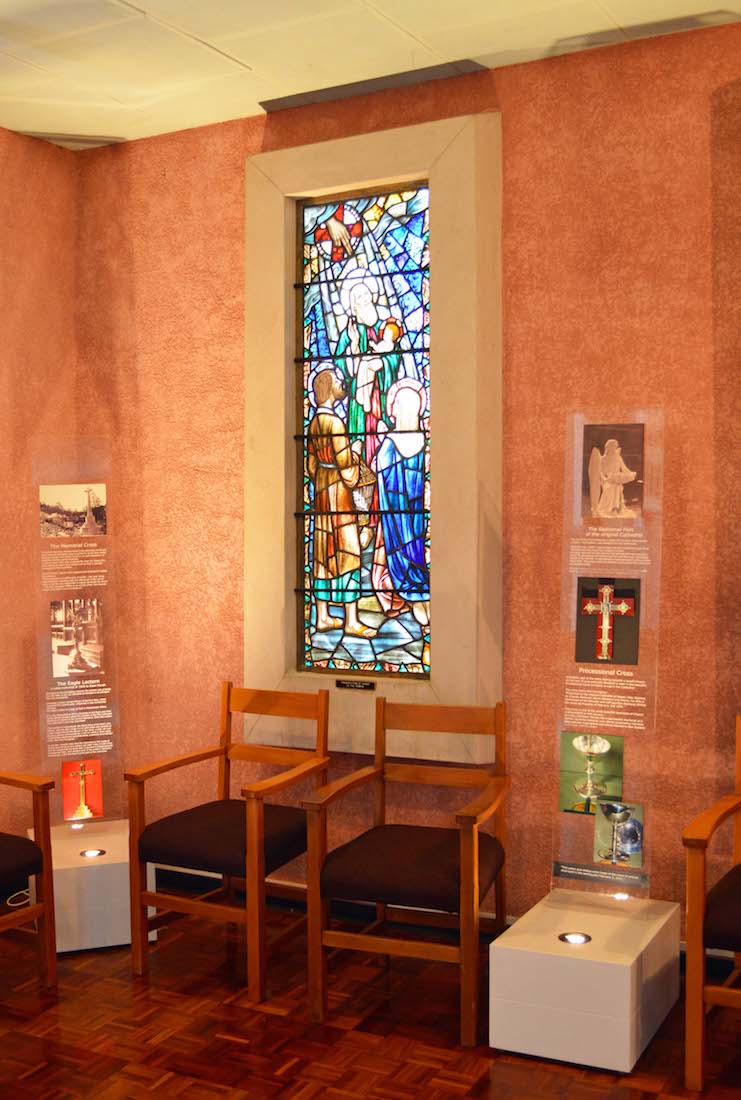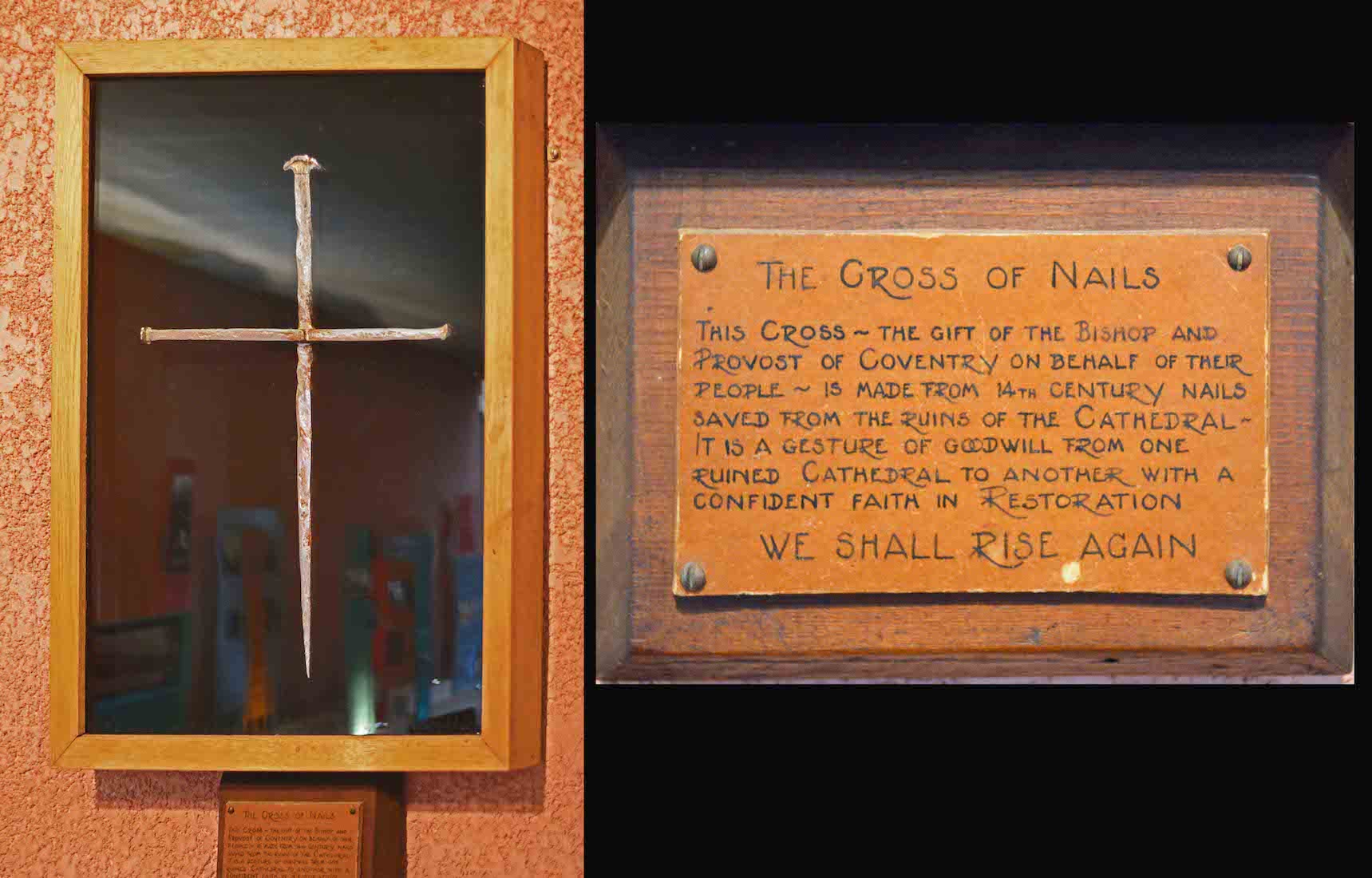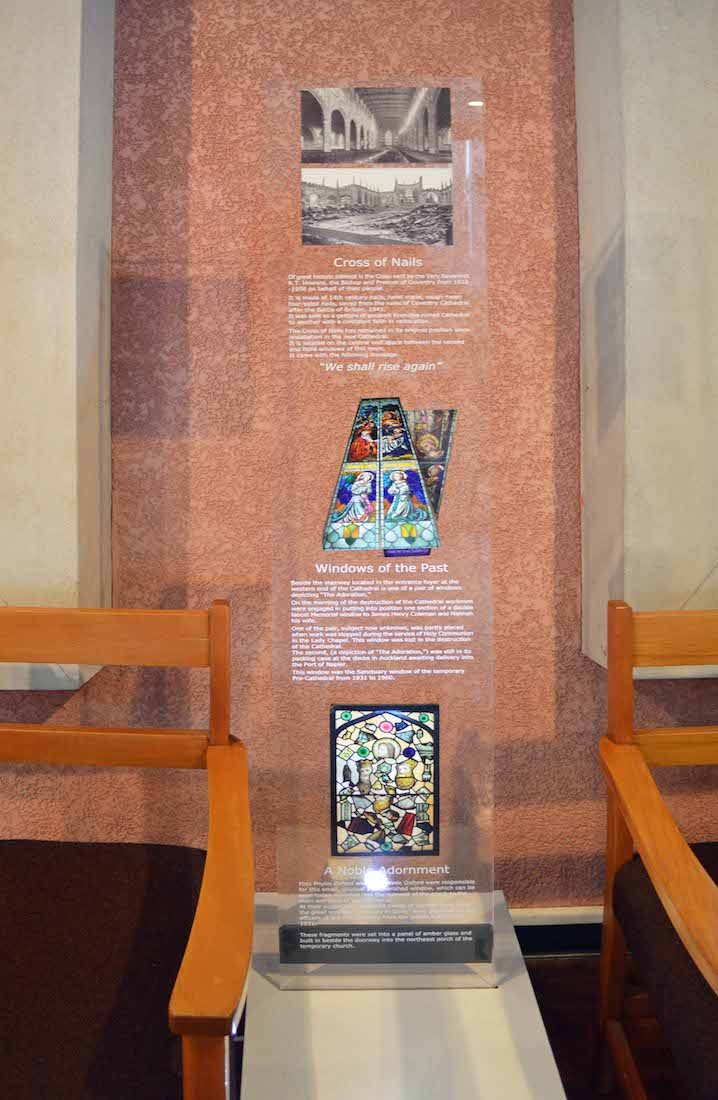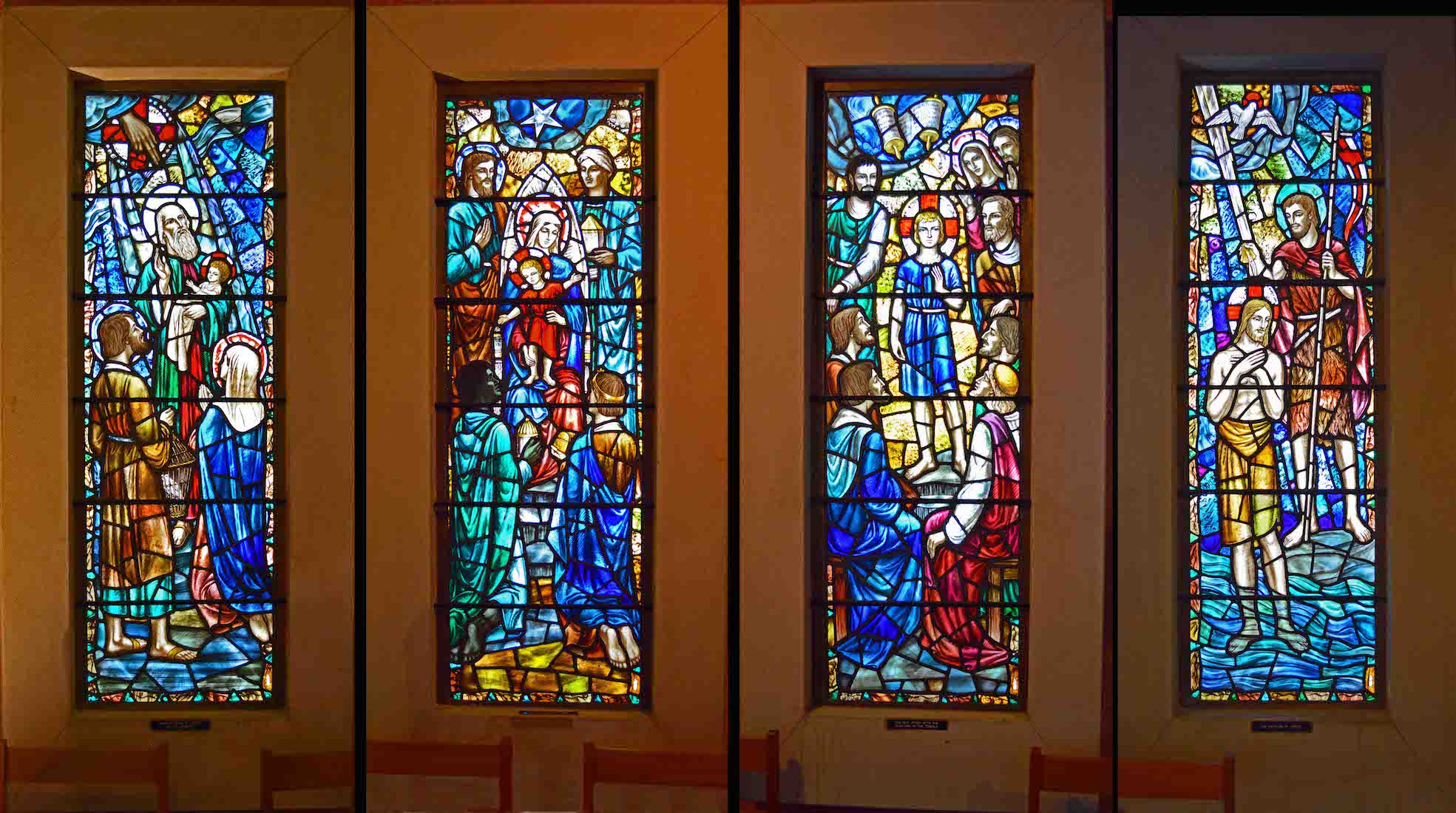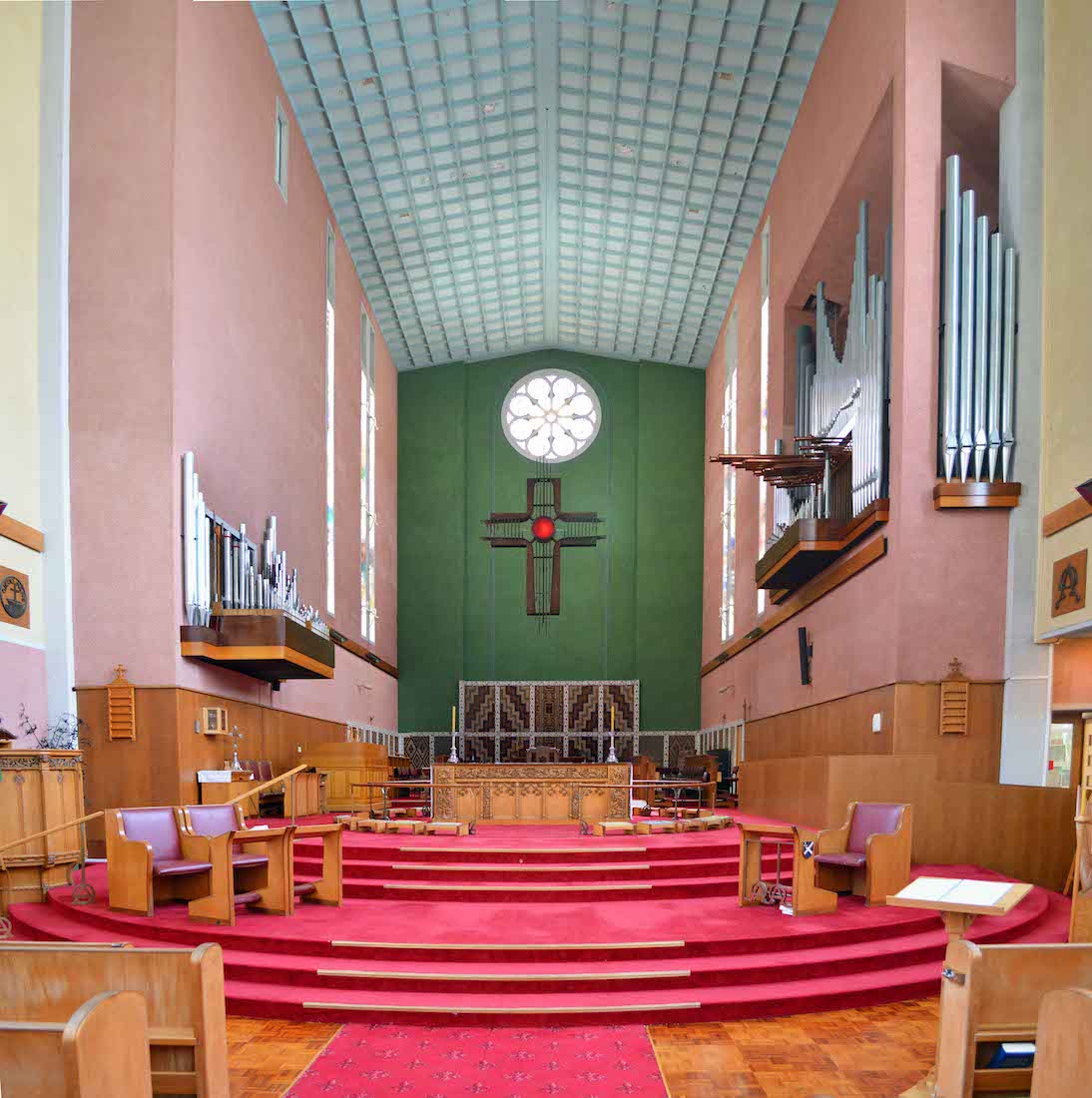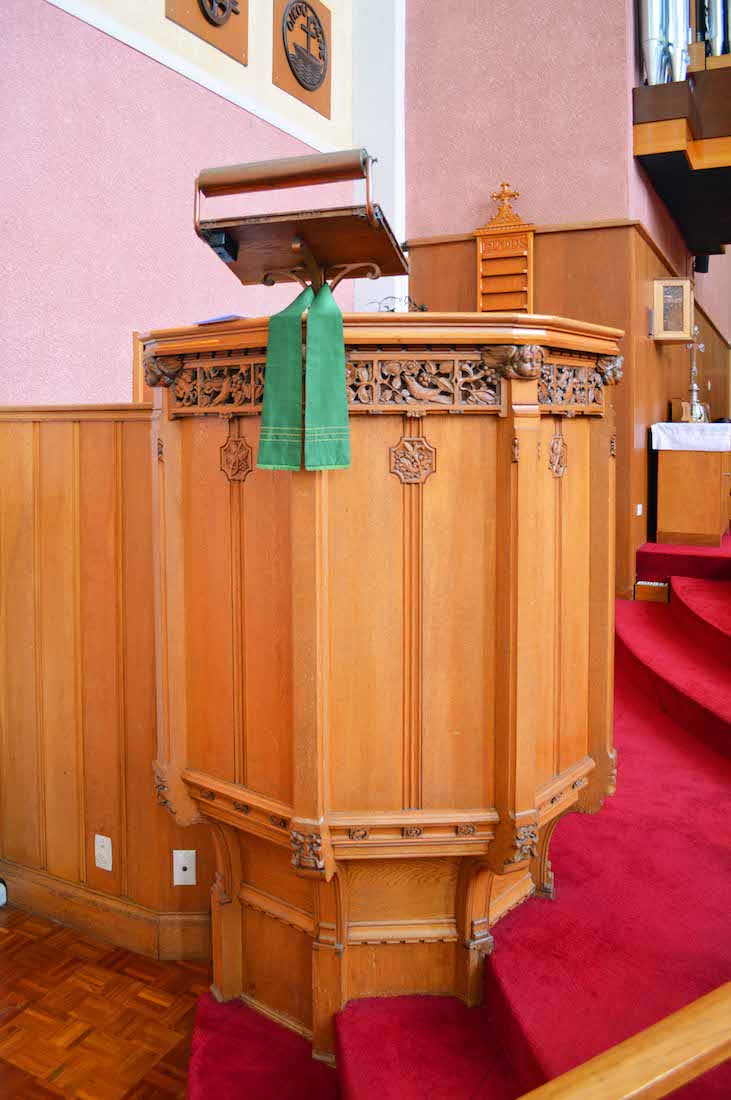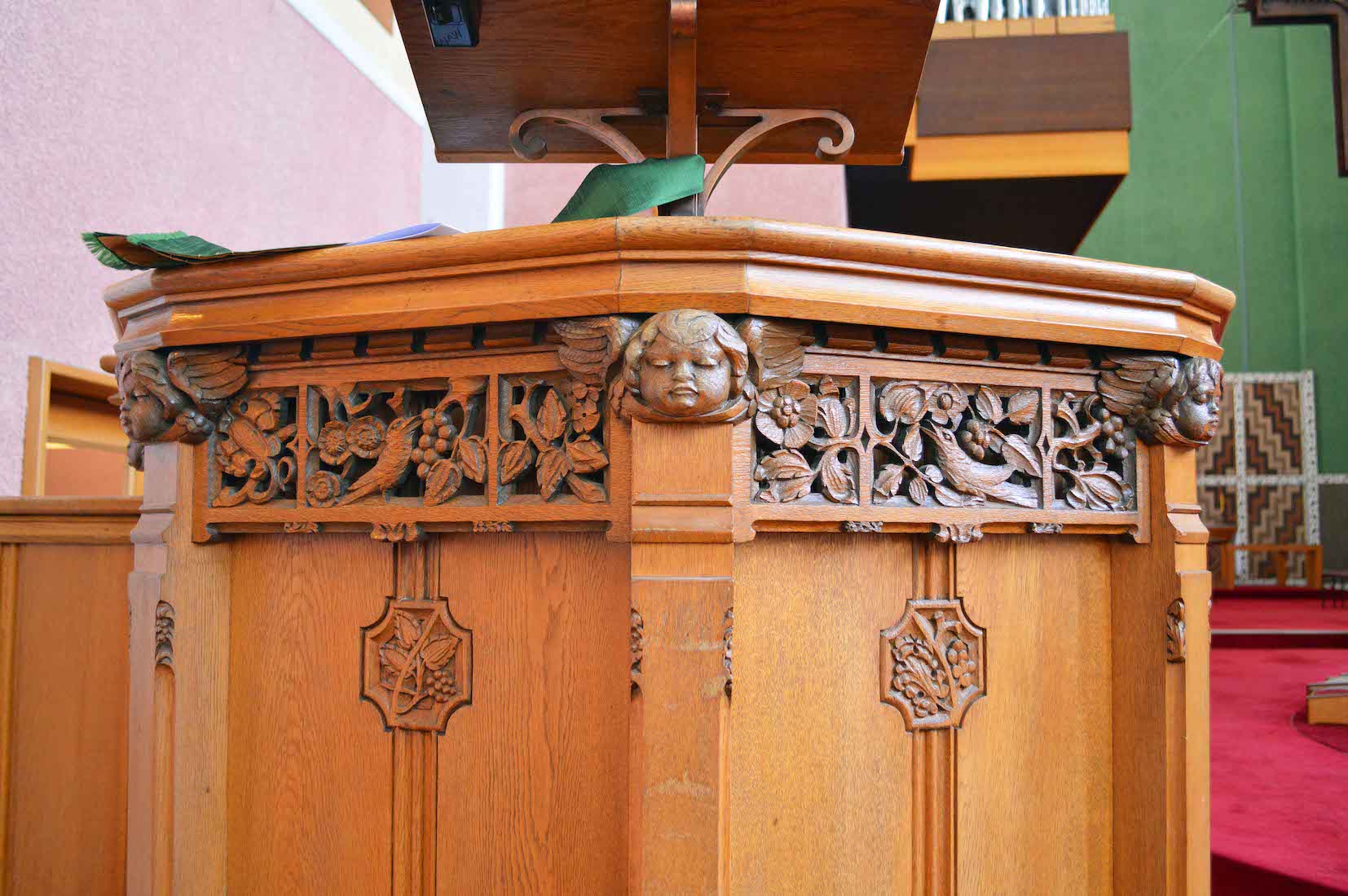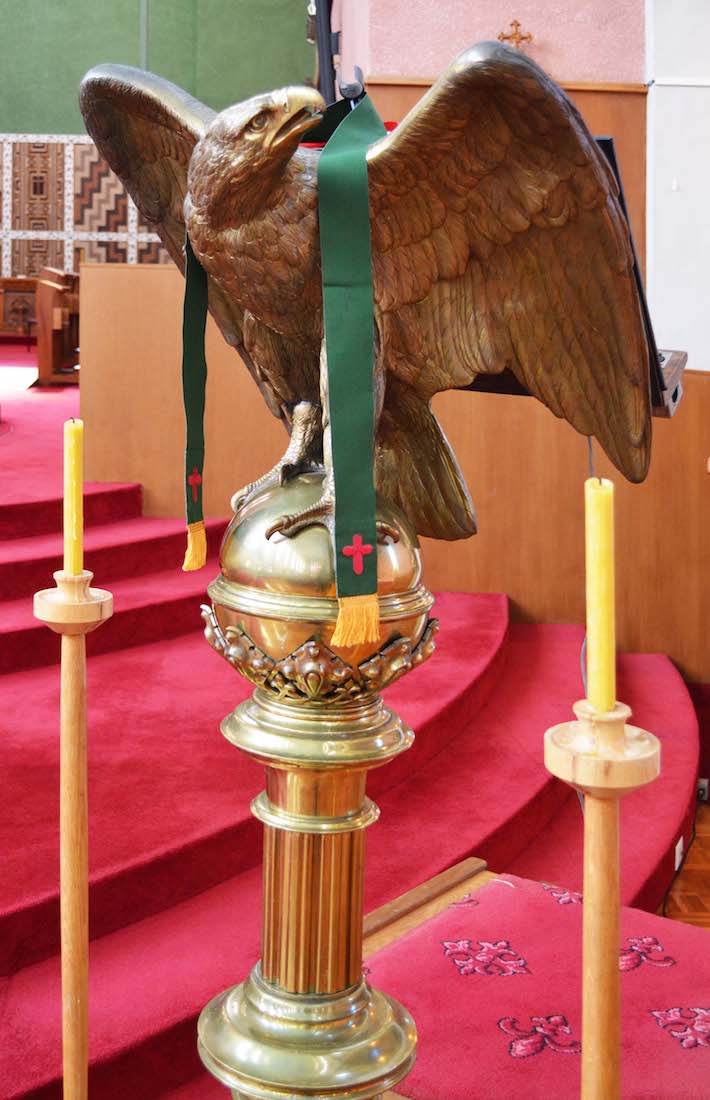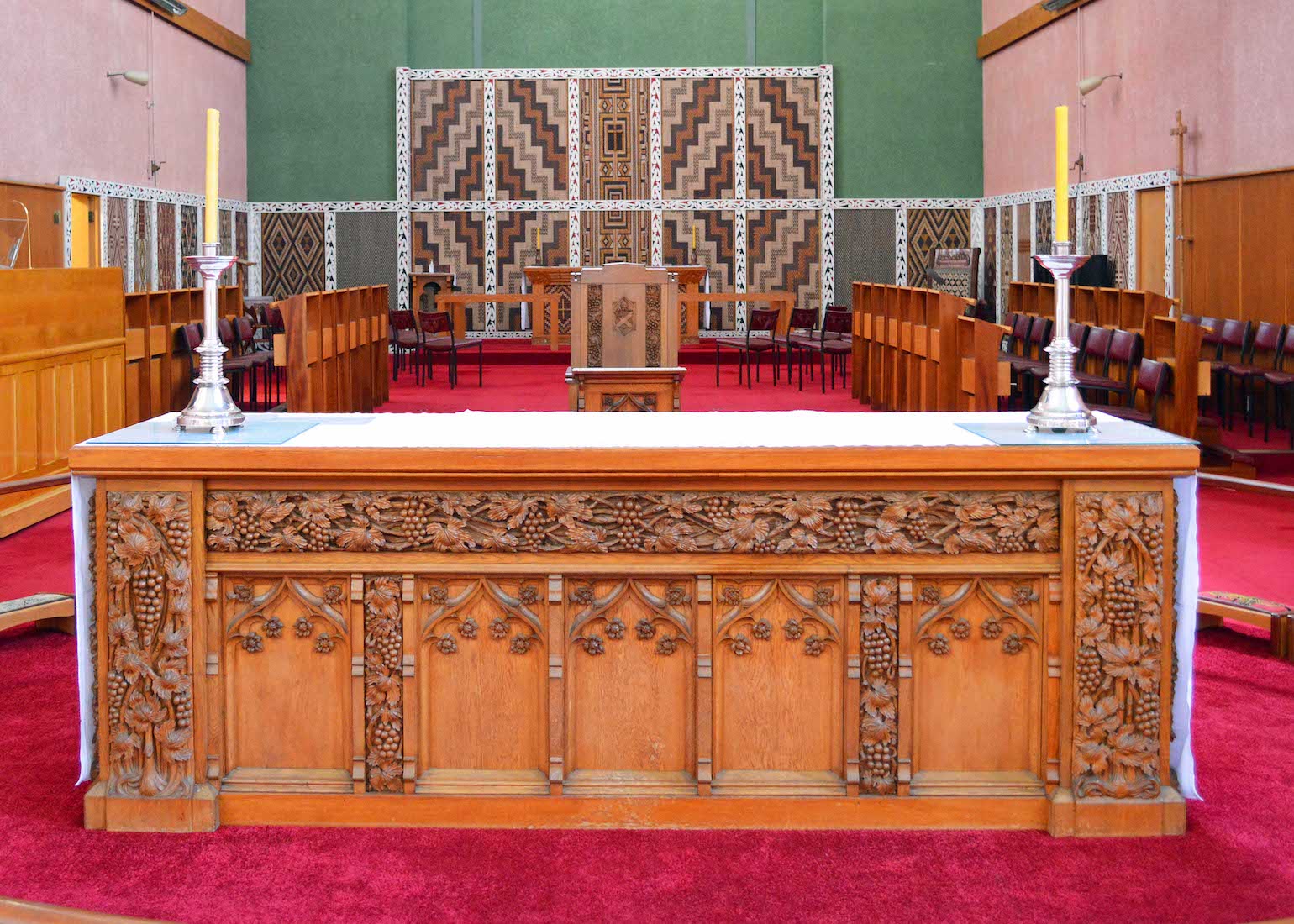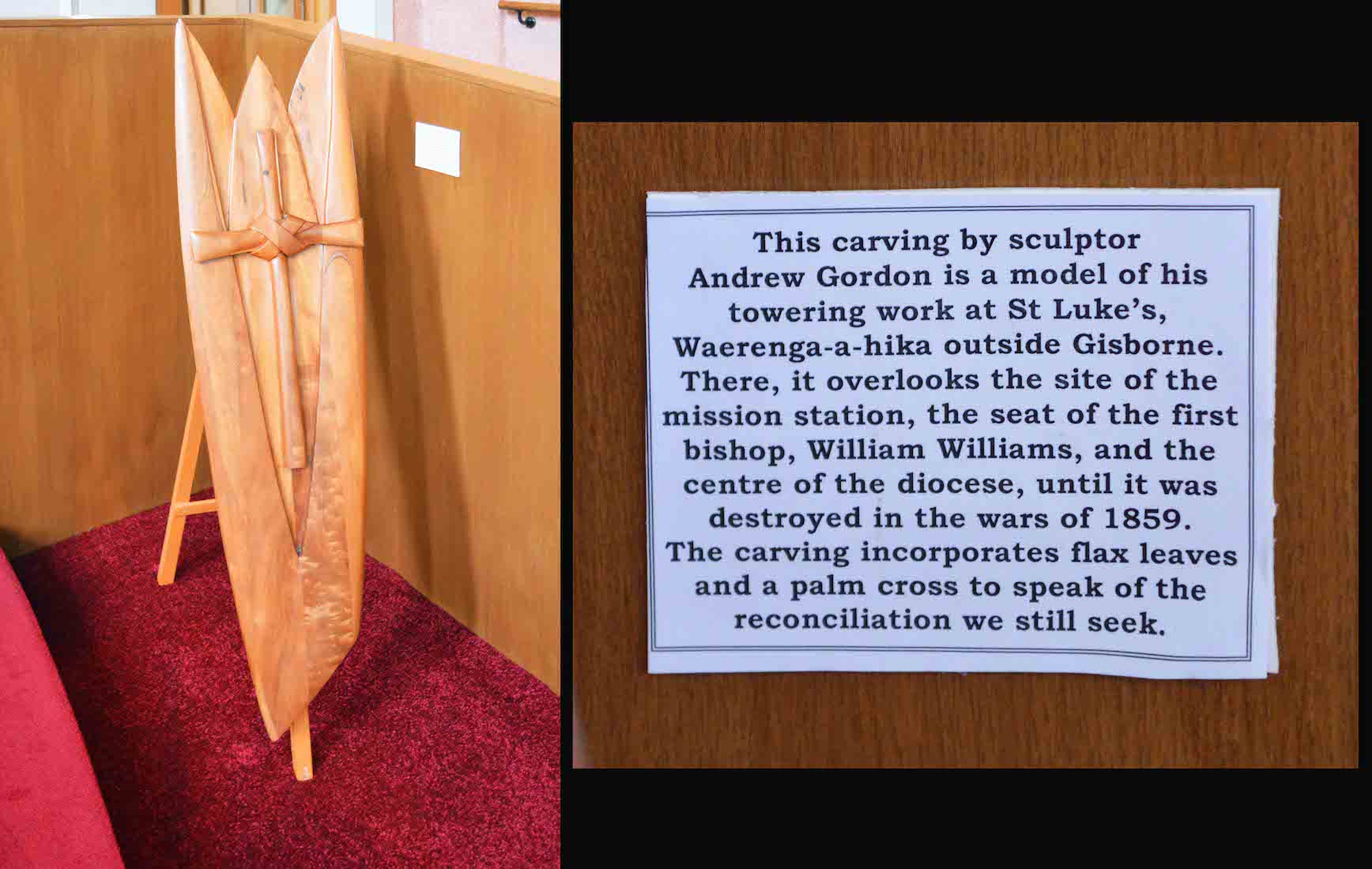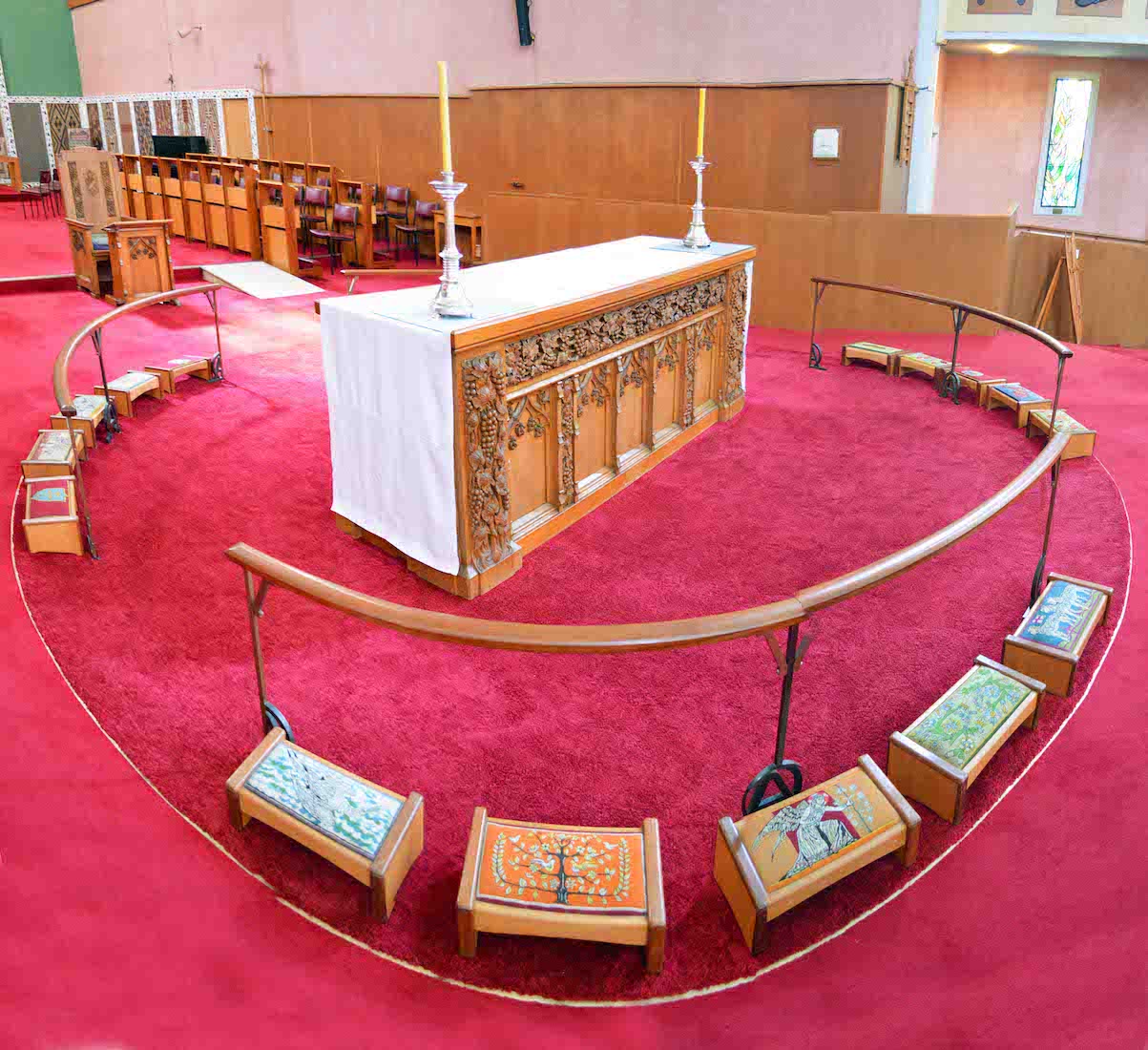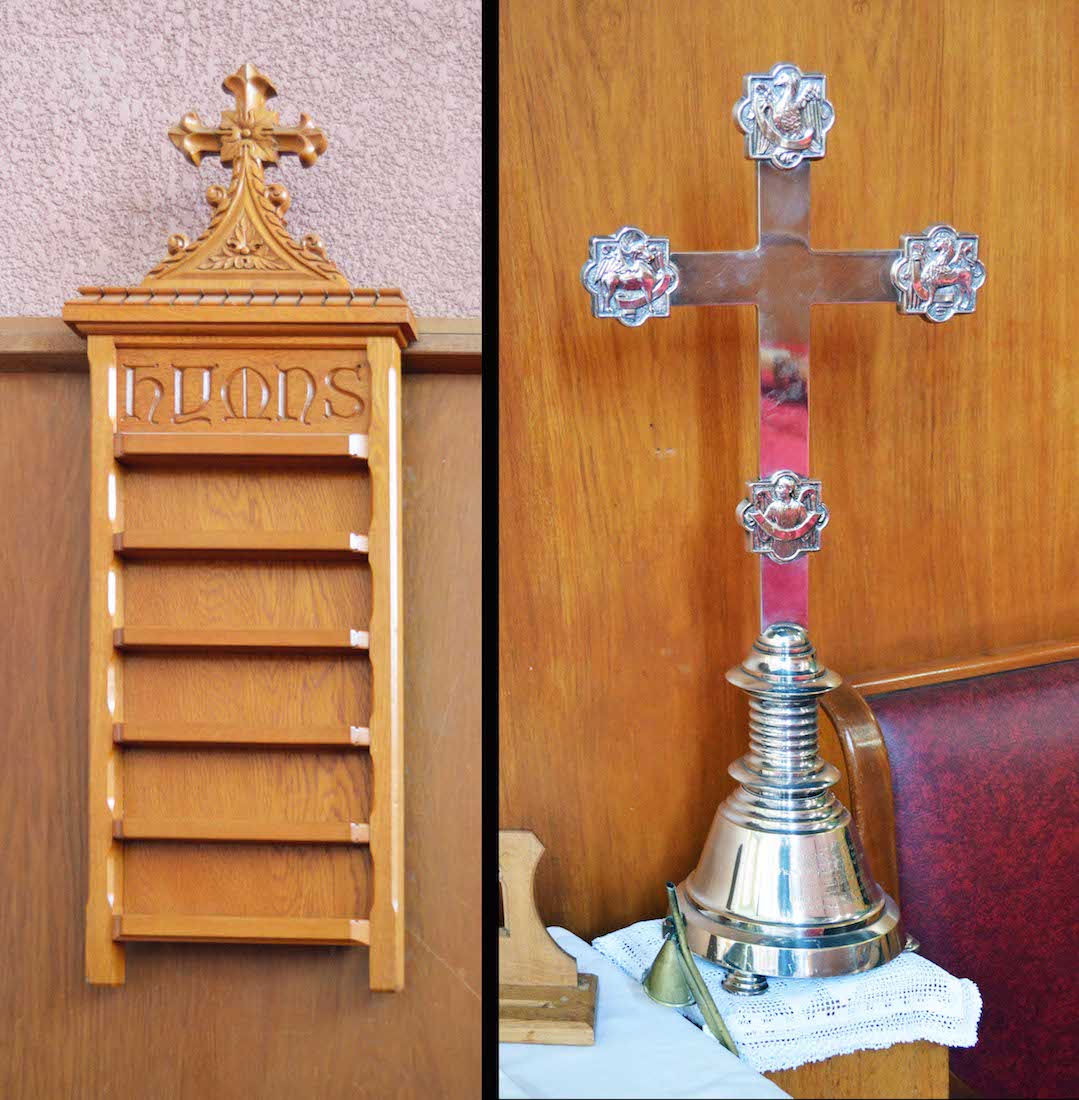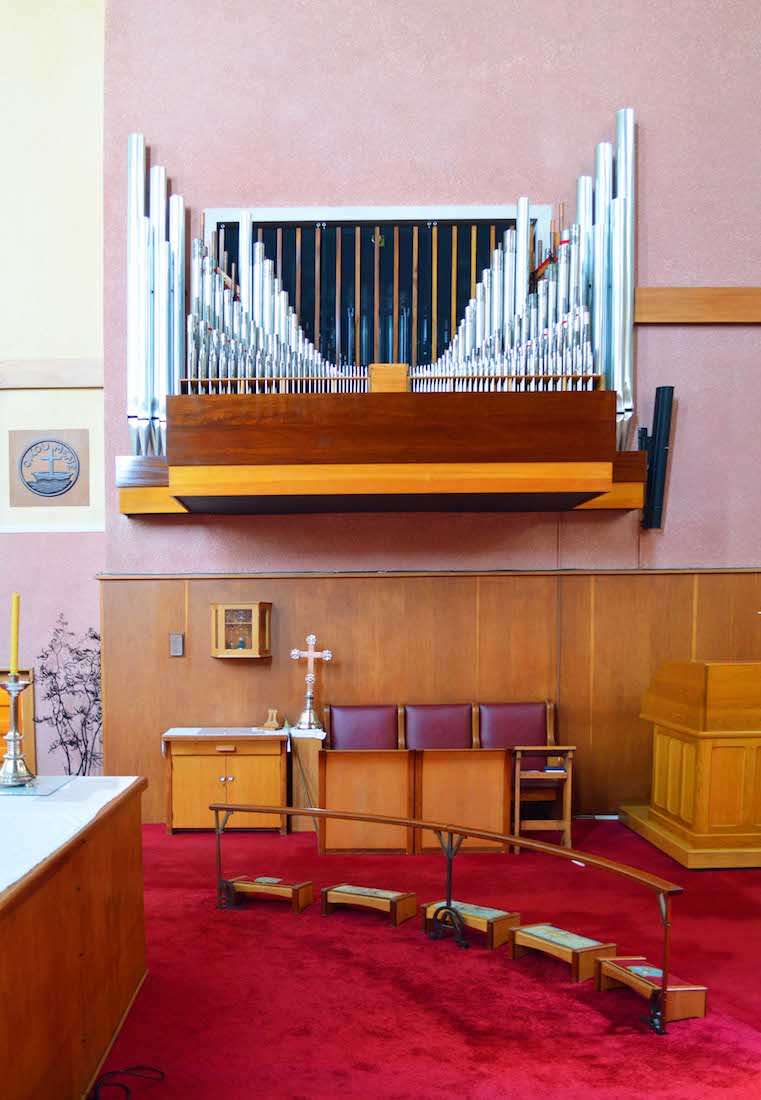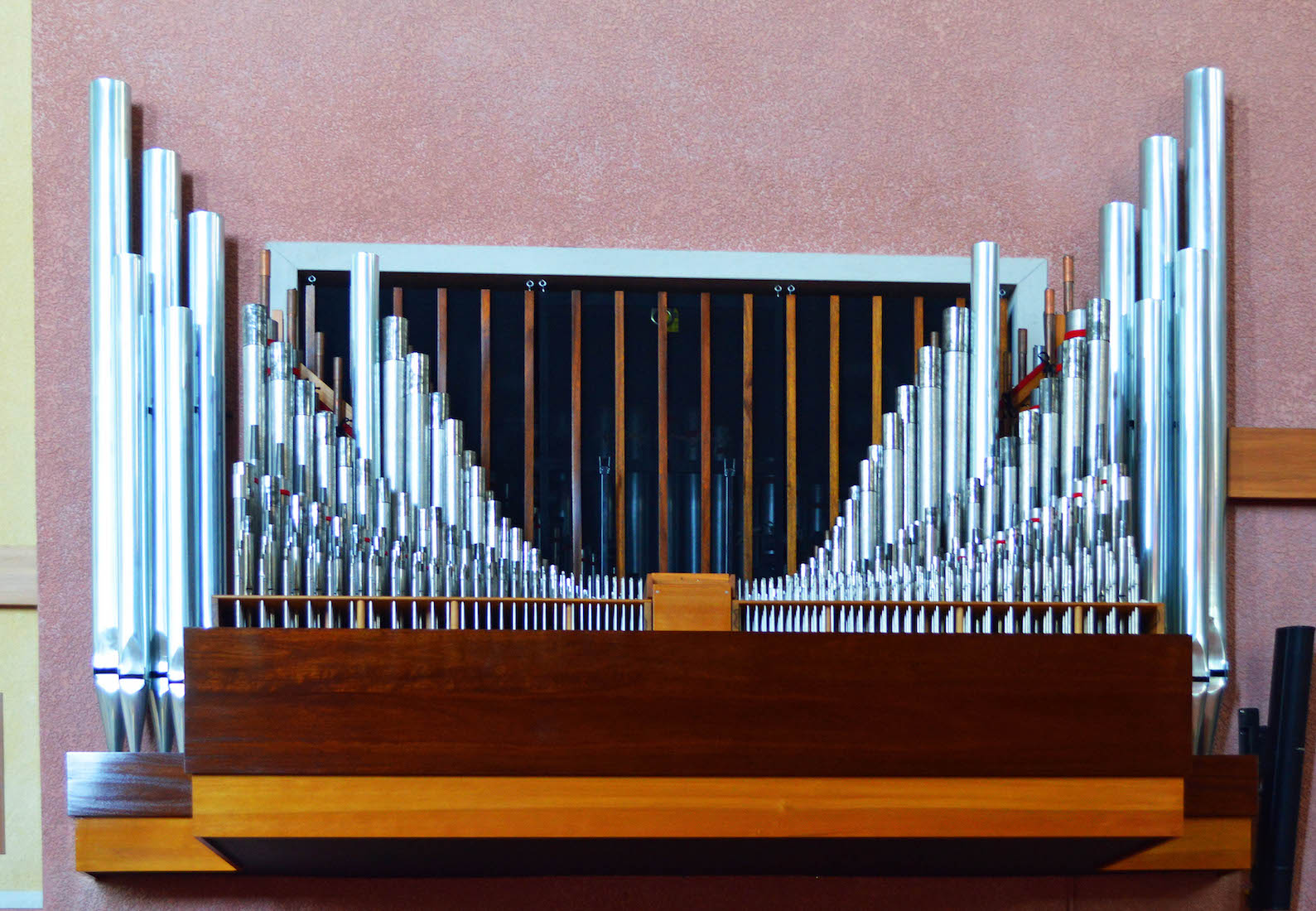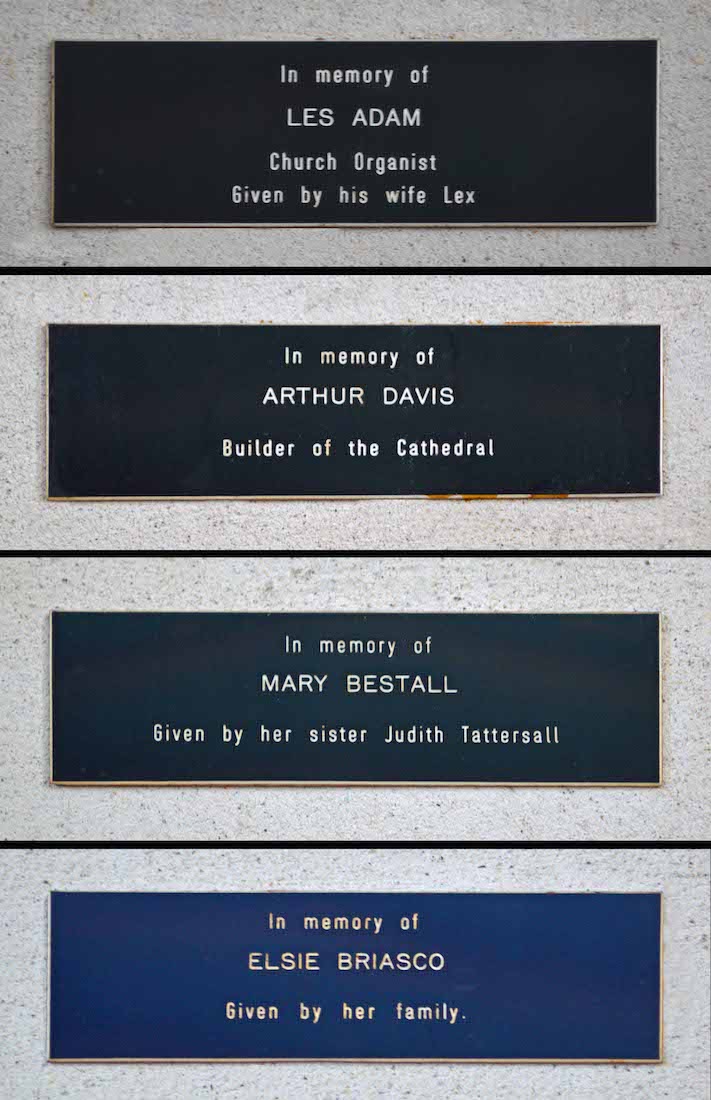
The four West windows are in memory of (from left to right): Les Adam (Church Organist); Arthur Davis (Builder of the Cathedral); Mary Bestall; and Elsie Briasco. PLAN
42. GALLERY VIEW
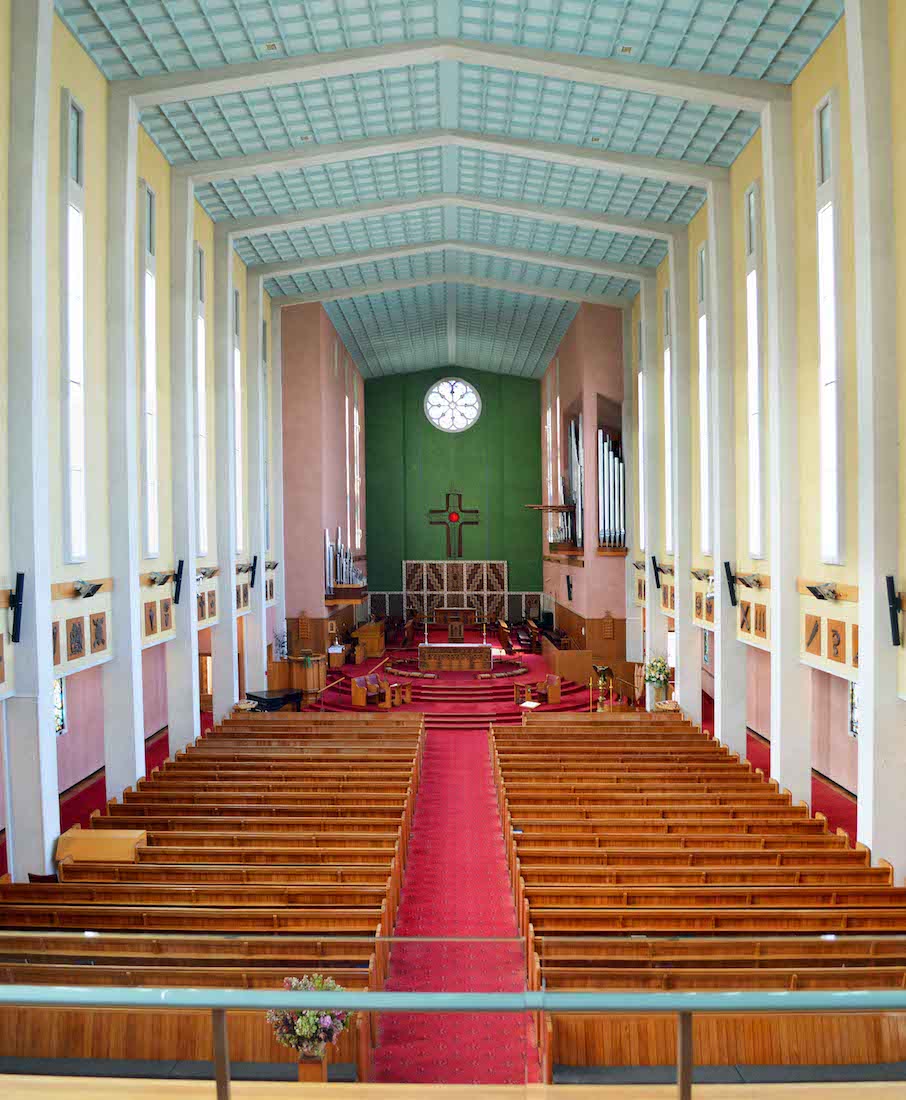
We shall now leave the nave to investigate the Baptistry Chapel below the gallery, before proceeding to the sanctuary.
44. FONT
The font is made of Italian marble and NZ granite with a carved greenstone John Dory fish. In it is embedded the remains of the first font, a gift from the English diocese of St Edmondsbury and Ipswich. [5]
45. SOUTH DISPLAY
On the South wall of the Baptistry Chapel is a display of nicely illuminated documents about the early history of the Cathedral.
46. NORTH DISPLAY
On the opposite (North) wall, the display continues. This is a Cathedral with a lot of history, so it is good to see it well recorded and presented.
47. BAPTISTRY SOUTH WEST CORNER
This shows one of the Baptistry windows, and how the displays are coninued right around the Chapel.
48. CROSS OF NAILS
This Coventry Cross is made from 14th Century nails of the old Coventry Cathedral destroyed in World War II. The spirit of forgiveness shown by the Coventry Cathedral after the War is touching, and this is a fitting link between two destroyed cathedrals. [4]
49. RUIN AND SALVATION
This little display links the ruin of the Cathedral to the efforts made to salvage remnants of the past.
50. BAPTISTRY WINDOWS
The Baptistry Chapel windows were made by Whitefriar Studios, England. They depict the childhood and baptism of Jesus: the blessing of Simeon; adoration of the Magi; Jesus teaching in the Temple; the baptism of Jesus. [6]
52. PULPIT
At left is the pulpit, from where the Word of God is expounded each week. The pulpit was designed by R. S. D. Hannan, and was carved by Guernsey, Christchurch. [12]
53. PULPIT DETAIL
The pulpit has angels at the top, and small gargoyles at the base. Gargoyles have been part of cathedrals for centuries!
54. LECTERN
The lectern supports the Bible, and it is from here that the Word of God is read Sunday by Sunday. This lectern is the only surviving furnishing from the original cathedral, and was given in memory of the first Dean. [14]
56. ALTAR
Like the pulpit, the altar is in traditional English style, though the work of New Zealand craftsmen. The altar was designed by W. Andrews of Tauranga, and following his death, completed by C. E. Cross in 1946. It is a memorial to parishioners who served in World War II. [16]
55. CARVING
Close by the lectern is this carving by sculptor Andrew Gordon. The carving incorporates flax leaves and a palm cross to speak of the reconciliation we still seek.
57. ALTAR SETTING
Unusually, the altar is placed in a circular setting, surrounded by rails and kneelers. The kneelers were embroidered locally.
58. HYMN BOARD AND CROSS
The carved hymn board and decorated cross can be found just back of the pulpit.
59. ORGAN
The organ was built by George Croft and Sons in 1974. It had three manuals, pedal boards, 53 speaking stops, 15 couplers and almost 3000 pipes. [19]
60. ORGAN
This is a close up view of the pipes on the North wall of the sanctuary. Following the 1931 earthquake a three manual/24 stop organ originally imported in 1884 from Lewis organ builders of London for Knox Church in Dunedin was installed in the wooden pro-cathedral. Knox Church had purchased a larger instrument. Much of the original and highly regarded Lewis pipework has been restored and continues to be used in subsequent rebuilds including the 2013 rebuild where it particularly features in the Swell Organ.


